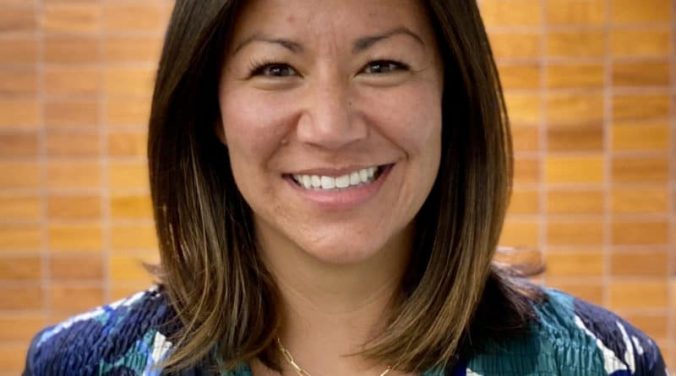Project Manager Carly Remm has proven to be a great asset for Foss Atlantic, having successfully triaged many of the safety issues encountered during the reactivation of a fleet of dilapidated vessels, returning (to date) five vessels back into safe service. Throughout these and other challenges, she continues to set a high standard, lifting the overall performance of her colleagues to ensure the safety of Foss’s people, vessels, and environment.
Tell us about yourself. Where did you grow up? Where did you go to school?
I grew up all over the southwest and Northeast. I went to USMMA and graduated in 2006 with a bachelor’s degree in Marine Engineering.
Tell us about your career, your current position, and what led you to it.
Upon graduation, I accepted a sailing position with Crowley Maritime on the company’s Invader Class tugs running from Jacksonville to Puerto Rico. The following summer, I was accepted into the Port Engineer Training program, where I sailed on various tugs and barges. This allowed me a comprehensive opportunity to experience the varying types of operations.
At that time, the petroleum ATB program was underway, and that’s where I settled in—as an Assistant Port Engineer working my way up to Port Engineer, managing ATBs and Tankers for eight years.
In 2021, I started to look for opportunities to get back into operational engineering and found the role with Foss Atlantic as the Fleet Engineering Planning Manager. The role was intriguing to me, as it combined reliability engineering with maintenance and equipment operations and the operational challenges faced in an interactive petroleum service. I accepted this role, eager to know I would be back in direct communication with the vessels and mariners.
I (later) found a role within Foss as a Project Manager, where I aspire to grow and support the team with my knowledge and understanding of operational requirements and help excel the brand and reputation with future work and projects.
Tell us about the importance of building a culture of safety from the ground up. In your own words, why do you believe you were nominated for a safety award?
Culture is a learned trait. A strong safety culture is designed in all sectors of business, as society has made clear that being safe and not causing harm is the right thing to do and what is best for organizations. By combining strong beliefs with proper work ethic, procedures, routines, and acceptable behaviors, anything can be changed and improved. This is how I relate to safety.
I believe I was nominated because I am confident in my experiences and knowledge of vessel operations and management. As the Fleet Manager, it was my role and responsibility to share with the new fleet the Foss safety culture and expectations.
Is there something in your life that drove your understanding of and commitment to safety?
My commitment to safety comes from having sailed and seen firsthand the risks that mariners take daily. I am also a Merchant Mariner’s wife, so (safety) is always in the back of my mind.
What was your first impression of Foss Atlantic? Tell us your favorite story about your time with the company.
When I accepted the role for Foss Atlantic and heard the vessels were from a defamed maritime company, I understood the foundational practices that were allowed by the previous managers. While this might have been a deterrent, I was keen to support and change these bad habits and molded values. I knew it was going to be hard and a long haul, but with a strong foundation from Foss Maritime and the support of our DPA and HSQE departments, I knew we were going to make huge strides in changing the perception of safety and engaging the mariners in a cleaner and safer operation.
Speaking up for safety can be difficult for some people. What advice would you give to someone within our family of companies who’s convinced their feedback won’t matter—or worse, that they’ll somehow be punished for taking action?
My advice is to stay curious and ask questions. If you are uncomfortable asking why or slowing down work because you don’t understand, think of what could happen if there was an incident. Asking why or asking about policies and procedures will help to re-engage all team members involved in the task, where the group should reflect on their own experiences and what the SMS says before attempting the work.
On the main page of our learning management system, the embedded video is “Foss—Speak Up, Take Action.” This is a reminder every time we go to complete our training and ongoing learnings. Our culture demands that we say something if we’re unsure. The video reminds me that I won’t be retaliated against for asking a question or slowing down the work. We have the support and expectation from Foss, Saltchuk Marine, and Saltchuk to be ethical and safe at all times and have the power to speak up.
Missed our Q&A with Foss Maritime Deckhand Engineer Leray Leasure? Read it here!
The post Safety Q&A with Carly Remm, Project Manager, Foss Maritime appeared first on People of Saltchuk.








